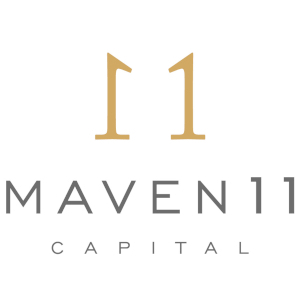Over the last couple of years, The Netherlands worked hard and achieved a remarkable position on the global innovation indices. Of course, we all know our high penetration of high-speed internet and mobile which are pre-requisites to boost innovation. The Netherlands ranked 4th on the Global Innovation Index, ranked 6th on the Global FinTech Country index, ranked 1st on online shopping (UNCTAD) and has one of the highest mobile banking penetrations and digital payment usage in Europe. This high level of digitization is one of the reasons that The Netherlands is hurt to a lesser extent by the recent COVID -19 outbreak than other EU economies which have a less advanced digital infrastructure and lower adoption rates of technology.
In the first half-year, there was a noticeable impact of COVID-19 on the level of FinTech investments. In Q1 2020 FinTech companies raised $4.6 billion globally, the same amount as in Q1 2019. But when COVID-19 really kicked in we saw a 36% decrease YoY with only $4.3 billion raised in Q2 of 2020 (CB Insights). Also in terms of deal activity, the numbers continue to fall. A similar trend is also identified in other geographies (US, Europe, Asia).
Especially in the angel/seed stage investment levels were hurt as investors focussed extensively on their existing portfolio, reassessed their risk appetite and opted to invest in clear winners. As such, we witnessed an increase of FinTech mega rounds in the first half of 2020 (100mln+, 28 deals in Q2 2020), most of them in Europe in the category challenger banks (Starling, N26, Revolut). The focus on later-stage deals seems to accelerate an ongoing trend, expedited by the debacle of WeWork last year, where investors focus on more established companies with a proven business model, strong growth and outlook on future profitability or exit potential.
Looking at the overall cumulative investments globally North America ($44.1bn) is still clear the leader in FinTech investments, Asia ($51.3bn) is ranked second and Europe ($15.1bn) follows as third (ForexSchoolOnline.com/Crunchbase). Regardless of the Brexit, the UK still attracted most of the funding in Europe although alternative hubs are becoming more important, of which Amsterdam is ranked 4th in the Global FinTech Cities of Europe.
The long-term impact of COVID-19 will be an increasingly digital and online driven society. The differentiating factors to acquire and sustain a customer are increasingly determined by user experience, customer satisfaction and adaptability to customer needs. As FinTech companies are relatively young companies who have built their systems on the latest technologies and with the end-customer in mind, they are well-positioned to take advantage. Fintech companies can also benefit from the increasing need of the incumbents to further digitize their operations and distribution channels. Therefore an increase in collaborations and partnerships between Fintechs and incumbent financial institutions is foreseen. in this respect, specific FinTech sectors are expected to fare very well, like everything related to onboarding and security solutions (RegTech and CyberSecurity), digital payments, SME lending platforms, while wealth management, challenger banks, FX-platforms show a more diffuse picture.
In spite of the fact that FinTechs are well-positioned for the future, we currently see almost a standstill on IPO’s. Some recovery is shown by the recent IPO’s of Lemonade, Shift4payments and of course the upcoming IPO of Ant Technology Group (former Ant Financial) but is way less than in the last couple of years. In general, there is pressure on the valuations regardless of the sub-segment within FinTech. Some segments are more or less stable (e.g. capital markets) and others show a more pronounced decline (e.g. Financial SaaS and challenger banks). There is also a tempered increase in M& A activity as investors pressing pause on major deals in order to re-consider valuations and risk appetite given COVID-19.
Corporate venturing contributes 30% to the overall investment activity in FinTech space and its contribution remains strong looking at the recent activity of the most active players in that space like Citi Ventures and Goldman Sachs Growth. Also in The Netherlands, the 3 largest banks continue to invest with recent transactions by ING (TransFICC, CountingUp), ABN AMRO (Quantexa, Penta), and Rabobank (Candis and Trussle). ING and Rabobank also facilitated home-grown initiatives with corporate spin-offs like Katana and SurePay. Investment activity of Dutch financial investors in the FinTech space seemed to slow down a little bit (except for Finch Capital and one noticeable investment in Floryn (9m EUR) by Peak Capital & Endeit).
To conclude: COVID-19 h will have a tremendous impact on the economy, banking and FinTech sector, and accelerate long term underlying trends that will shape the future of banking such as changes in customer demand/behavior, the impact of emerging technologies (AI), pressure on traditional business models of incumbents and their need to digitize. There is still a lot of friction within the financial world that needs to be solved and which is attractive enough to tackle by either BigTech, FinTech and incumbents, and therefore offer interesting opportunities for investors. Of course, we see differences in emphasis on different subsegments due to the current situation, a potential shake-out in the FinTech eco-system, consolidation in the banking world, increasing inorganic growth potential, and continued interest of BigTech in this space. The different parties co-exist, collaborate, and compete with one another and are likely to last for the coming years.









